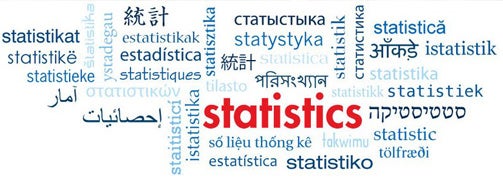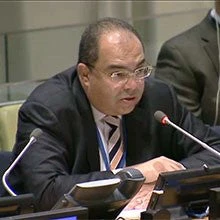
For over 13 years, the Millennium Development Goals (MDGs) have provided a yardstick for measuring progress toward important development outcomes: eradicating extreme poverty, educating children, empowering women, reducing mortality and disease, and ensuring environmental sustainability. They have helped to mobilize support for development programs and encouraged more coherent actions on the part of donors and partners. The MDGs have also stimulated demand for better statistics and new programs to increase the capacity of developing countries to produce and use statistics. Now, as the deadline for the MDGs approaches, there is a two-pronged effort underway: first, to accelerate progress toward the MDG targets in the final “1000 days” before 2015, and second, to define a post-2015 development agenda and the timeframe and targets that will be used to monitor it.
“Unless you have a target with an end date, it is very hard to make people work together in commitment to achieving any kind of goal,” said World Bank President Jim Yong Kim
The discussion of post-2015 development goals is on-going. There are many ideas and many competing priorities that will have to be reconciled. But one thing that everyone agrees on is the need for reliable statistics to guide policies and measure progress. In their final communiqué the recent meeting of the High-Level Panel of Eminent Persons on the Post-2015 Development Agenda declared,
We need a data revolution. Too often, development efforts have been hampered by a lack of the most basic data about the social and economic circumstances in which people live. Substantial improvements in national and subnational statistical systems including local and subnational levels and the availability, quality and timeliness of baseline data, disaggregated by sex, age, region and other variables, will be needed.
At the time the Millennium Development Goals were adopted, only a few developing countries had the capacity or resources to produce statistics of the requisite quality or frequency to monitor development progress and document results. Many countries had not undertaken the necessary reforms in their statistical systems nor conducted a recent census or a household survey capable of producing information on income, consumption, or health status. The United Nations, the World Bank, regional development banks, and the IMF responded by creating new partnerships and mobilizing additional resources to provide support for statistics in developing countries. The result has been a marked improvement in the quality and availability of statistics to measure core development targets and outcomes: poverty and income distribution, school enrollments, mortality and morbidity rates, debt sustainability, and environmental conditions.
At their meeting in February 2013, heads of the multilateral development banks took up the topic, “Millennium Development Goals and the post-2015 Framework: What do they mean for our organizations?” During their discussion, they agreed to strengthen collaboration between their institutions on issues related to data and statistical capacity building in their member countries. Now to reaffirm their commitment to improving the quality and availability of statistics for monitoring development goals, the World Bank, African Development Bank, Asian Development Bank, Inter-American Development Bank, Islamic Development Bank, International Monetary Fund, and the United Nations have agreed to a Memorandum of Understanding that sets out principles and modes of collaboration. The MoU will be signed on 19 April by the presidents of the World Bank and regional development banks and the Secretary-General of the United Nations.
Monitoring the post-2015 development agenda will require a wide array of statistical information obtained through many channels using a variety of instruments. In countries that lack the capacity to produce – or to use – timely and reliable statistics, a system-wide approach to capacity building is needed. To be successful statistical capacity building programs – like the goals themselves – should enjoy political support, and encourage open and free dissemination of data, and be aligned with national statistical plans. This is a big job – too large for one agency alone or even several acting independently – to undertake. That is why we are so pleased to have the support of our most important partners as we look ahead to 2015 and beyond in building an ever stronger collaboration with national statistics agencies.



Join the Conversation